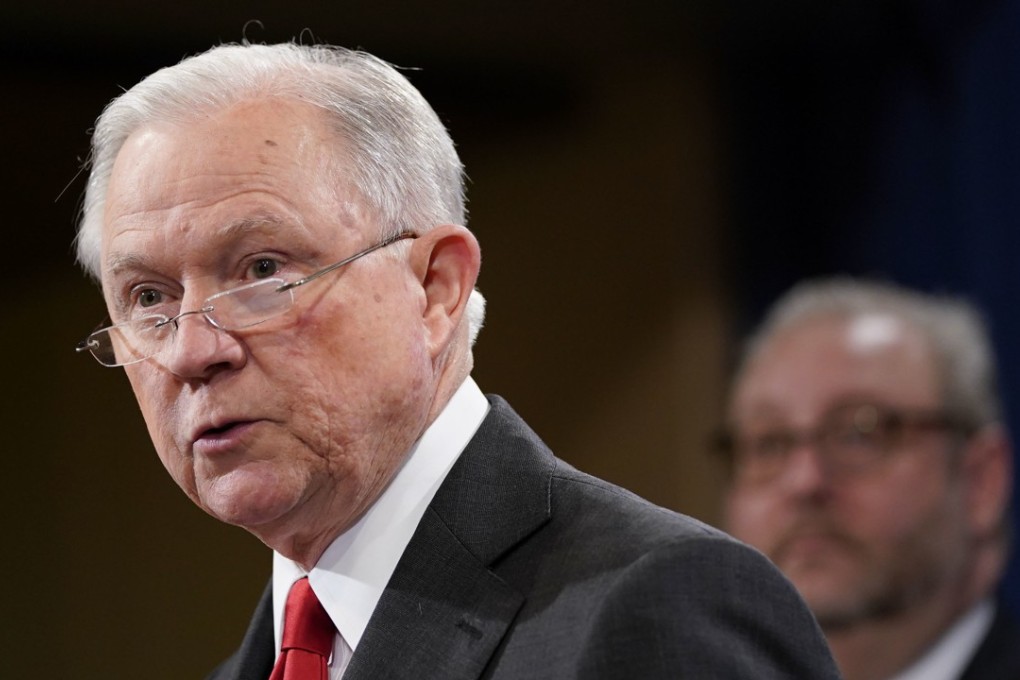Beijing tells Washington to provide ‘concrete evidence’ China is stealing trade secrets
- Foreign ministry responds to US attorney general’s announcement he is setting up a task force to ‘combat Chinese economic espionage’
- It also says two sides should ‘strictly follow their leaders’ directives’ and try to resolve differences

Beijing has challenged Washington to provide evidence for its new Justice Department initiative targeting China’s alleged state-backed theft of trade secrets.
“If the Americans are really concerned about this issue [economic espionage], they should provide concrete and fact-based evidence that can be examined,” Lu told a regular press briefing on Friday.
It came after US Attorney General Jeff Sessions on Thursday announced that he was setting up a task force to “combat Chinese economic espionage”.
“This initiative will identify priority Chinese trade theft cases, ensure that we have enough resources dedicated to them, and make sure that we bring them to an appropriate conclusion quickly and effectively,” Sessions said.
Chinese economic espionage in the area of intellectual property had been “increasing rapidly” and posed “a grave threat” to American national security, he said. “Enough is enough. We’re not going to take it any more.”